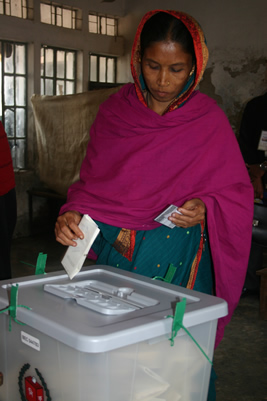Citizenship
Threats to democratic governance caused by a) the uneven distribution of power and b) the existence of potentially conflicting groups, often means that democracy cannot function in a community without a high level of active participation of its members.

But levels of voter turnout differ widely between different countries that continue to call themselves democracies. In Britain today it is the lowest it has been for many decades. In many local elections the turnout is well below 50 per cent. Clearly, voting is not seen by British citizens as the most central part of exercising active citizenship.
Given examples like this, it is clear that there is a range of concepts regarding citizenship.